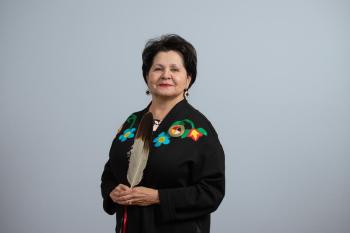Image Caption
Summary
Local Journalism Initiative Reporter
Windspeaker.com
On Saturday, Sept. 30, Canada marks the third annual National Day of Truth and Reconciliation. It raises awareness about the legacy of the Indian residential school system, commemorates survivors and their families, and honours the children who never made it home from those institutions.
The National Centre for Truth and Reconciliation and APTN will host a 90-minute multilingual commemoration event on Parliament Hill.
In 2015, the Truth and Reconciliation Commission on Indian residential schools called for the federal government to establish a statutory holiday “to honour Survivors, their families, and communities, and ensure that public commemoration of the history and legacy of residential schools remains a vital component of the reconciliation process.”
Along with the federal government, the three territories, and only the provinces of Prince Edward Island, New Brunswick and British Columbia, mark Sept. 30 as a statutory holiday.
Claudette Commanda, an Algonquin Anishinaabe from the Kitigan Zibi Anishinabeg First Nation, will be one of the Elders taking part in the commemorative event on Parliament Hill. She admits she never thought a day like this would ever happen, but now that it is here, she wants to see it be more.
For those provinces that don’t recognize the day, Commanda says that is a show of disrespect.
“If it's in law that it is a statutory holiday…it gives (the day) more clout and they should (take part) because, the way I see it, it's elevating the respect for survivors in the same way November 11 is about respecting the veterans,” said Commanda.
Especially, she adds, as more and more unmarked graves continue to be located at the sites of residential schools.
“No matter how dark the truth is, the darkest of Canada, it's still the truth and that's what we've got to start with. The history of residential schools and the impacts of these residential schools to communities, and we're still living the trauma of those residential schools,” said Commanda, who is the first Indigenous leader to be named Chancellor of the University of Ottawa.
Even if provinces are baulking at adding another statutory holiday to their list of paid days off, Commanda says they should at least hold educational events or workshops with Elders so their staff can learn about residential schools and their impacts.
For Commanda, Sept. 30 is a day for honouring, praying, but mostly reflection.
“Reflect means in the sense that Canadians need to reflect on their past, and they, first of all, they need to listen to the voices of the survivors when they speak of their stories and their different realities,” she said.
Sept. 30 was selected as the commemoration day as it marked the time of year children were taken from their homes and, since 2013, has been observed as Orange Shirt Day. Residential school survivor Phyllis Webstad, at age six, was stripped of her brand-new orange shirt on her first day attending the St. Joseph Mission Residential School near Williams Lake, B.C. Orange Shirt Day is a movement to recognize the colonial legacy of residential schools and commit to the ongoing process of reconciliation.
As for the celebration that is tied to the day, Commanda says that marks the resilience of a people “who are still here.”
Commanda will be joined at the Sept. 30 event, entitled Remembering the Children, by Dr. Evan Adams and Dr. Levinia Brown. There will also be performances by First Nations, Inuit and Métis artists, including Aysanabee, Willows, and Alicia Kayley.
“National Day for Truth and Reconciliation is an opportunity for all of us, Indigenous and non-Indigenous, to come together in a spirit of healing and understanding,” said APTN CEO Monika Ille.
“This commemoration is our time to reflect collectively as a nation as we listen to the Elders and Survivors who are sharing their oral histories and their healing journeys. Only then can we truly begin to walk the path of reconciliation together,” reads a press statement from Stephanie Scott, executive director for the National Centre for Truth and Reconciliation.
Those who attend the event are encouraged to bring a pair of traditional shoes to place at the front of the stage in honour of all the Indigenous children who have gone missing. After the event, the footwear will be donated to charity.
Charles Bender and Madeleine Allakariallak will host Remembering the Children, which will include dialogue in English, French and Indigenous languages. The live gathering will be broadcast on all APTN channels and made available to all Canadian broadcasters CBC, Citytv, CPAC, CTV, Global News, Radio-Canada, Inuit TV and Uvagut TV.
Local Journalism Initiative Reporters are supported by a financial contribution made by the Government of Canada.

